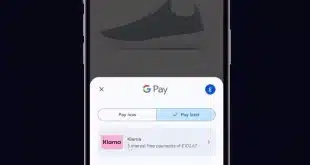By Jim Daly
Another sign that the U.S. EMV conversion has a long way to go emerged last week when a survey of more than 990 independent business owners by Newtek Business Services Inc. revealed that 71% of respondents were unaware of the so-called EMV liability shift coming on Oct. 1. And 81% of respondents answered no when asked if they have upgraded their point of sale systems or terminals to be EMV ready and also accept Apple Pay—in other words, contactless mobile payments, which the payment card networks hope will get a lift with the EMV conversion.
Only 29% of respondents said yes when asked, “Are you aware that by October of 2015, Visa and MasterCard will hold the merchant responsible for credit card fraud if they do not have an EMV-compliant terminal?”
Barry Sloane, president and chief executive of New York City-based Newtek, likens the low level of merchants’ EMV awareness to college students who don’t do much studying until test time approaches. “There’s always a fairly significant portion of students that didn’t do anything on their lessons, and cram for their final exams,” Sloane tells Digital Transactions News. “I think that level of awareness will pick up.”
Come October, the party to a general-purpose credit or debit card transaction that doesn’t support EMV chip cards, be it the issuer or merchant, will bear liability for any resulting counterfeit fraud. That liability shift has issuers pumping out chip cards en masse this year, and merchants upgrading their POS systems to accept them. Big-box retailers and national restaurant chains are much farther along than small merchants.
Newtek offers merchant processing, loans and other services to small merchants under The Small Business Authority brand. Some 15,000 businesses use its merchant-processing services, generating $4.7 billion in charge volume last year. The EMV survey, conducted in February, gathered its data from merchants calling Newtek’s customer-service lines, including customers who don’t use Newtek’s merchant-processing services.
The survey had a somewhat more encouraging other finding: 35% of the callers who were Newtek merchant-services clients had done something to prepare for EMV, Sloane says.
The big selling point for EMV mostly has been to reduce counterfeiting fraud, to which magnetic-stripe cards are quite vulnerable, and lost-and-stolen card fraud, and also to get the United States in step with most of the rest of the industrialized world where chip cards now dominate. But small-business owners have other things on their minds, says Sloane.
“They think about their revenues, they think about expenses, and they think about their risk,” he says. “Risk is a far distant third.”
The fact that only 19% of the callers claimed to be EMV-ready in February isn’t surprising. Earlier that month, a Visa Inc. executive reported at a Smart Card Alliance conference that only 78,800 merchants were wired and ready to accept EMV transactions, a small fraction of the overall U.S. merchant base.
Sloane predicts about 80% of his merchants will be EMV-ready by October. Newtek is ramping up its merchant-awareness efforts and running an email offer for a “significantly discounted” Dejavoo Systems terminal, according to Sloane. The terminal supports EMV and near-field communication (NFC) transactions, the kind generated by Apple Pay and some other mobile-payments systems.





